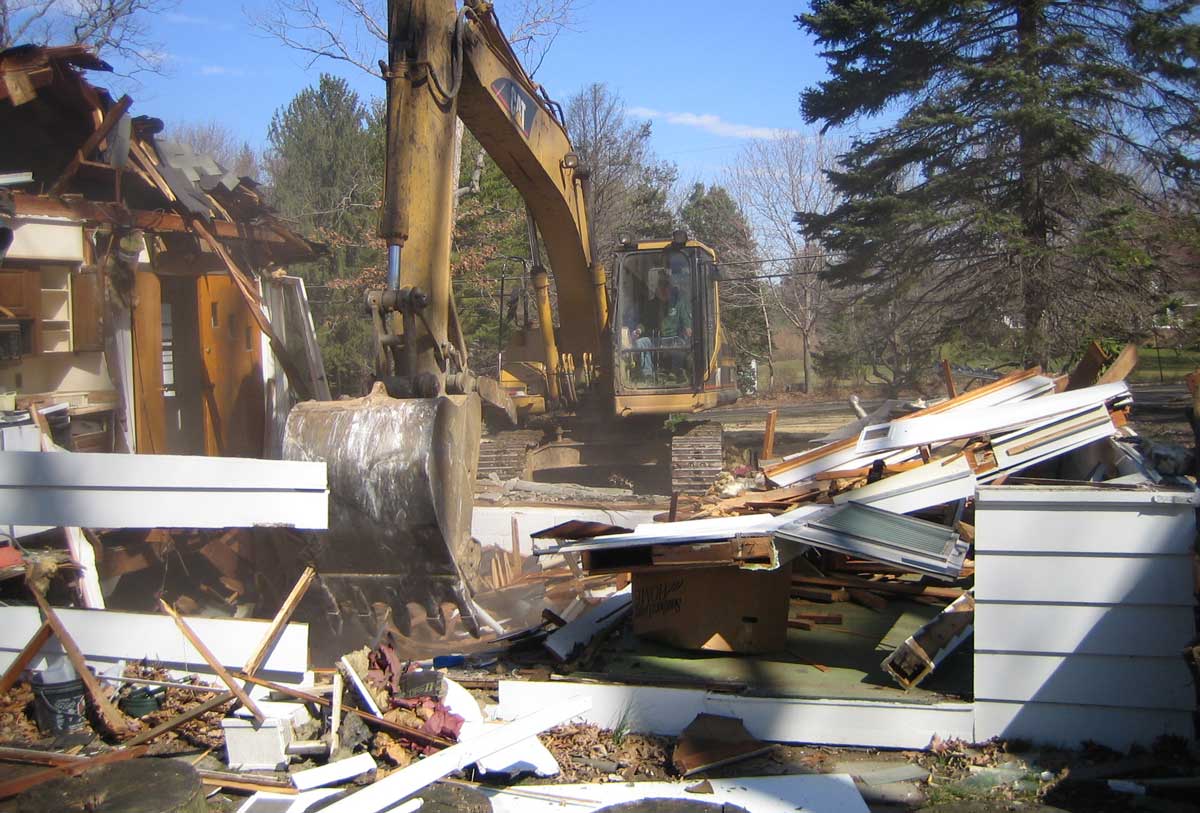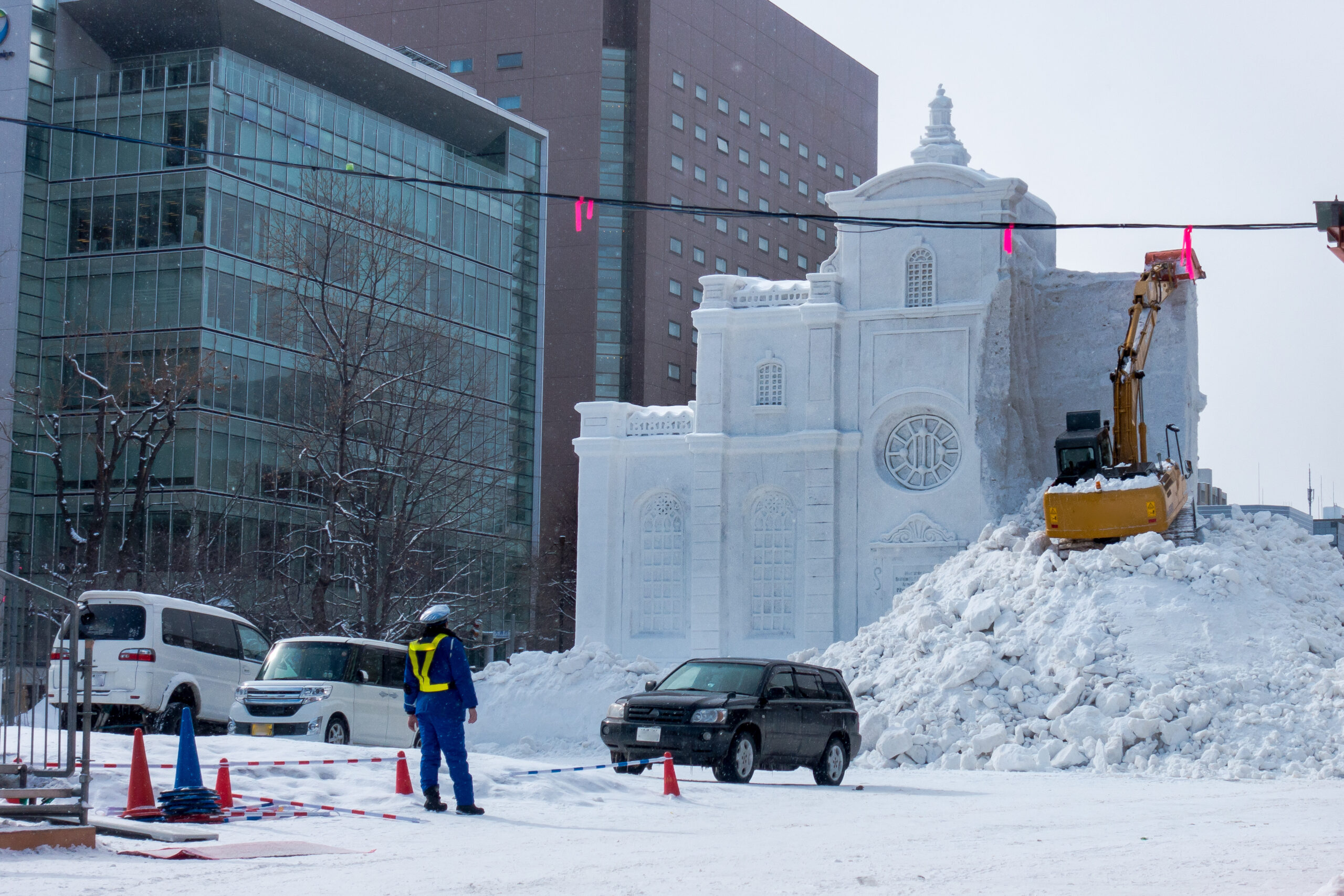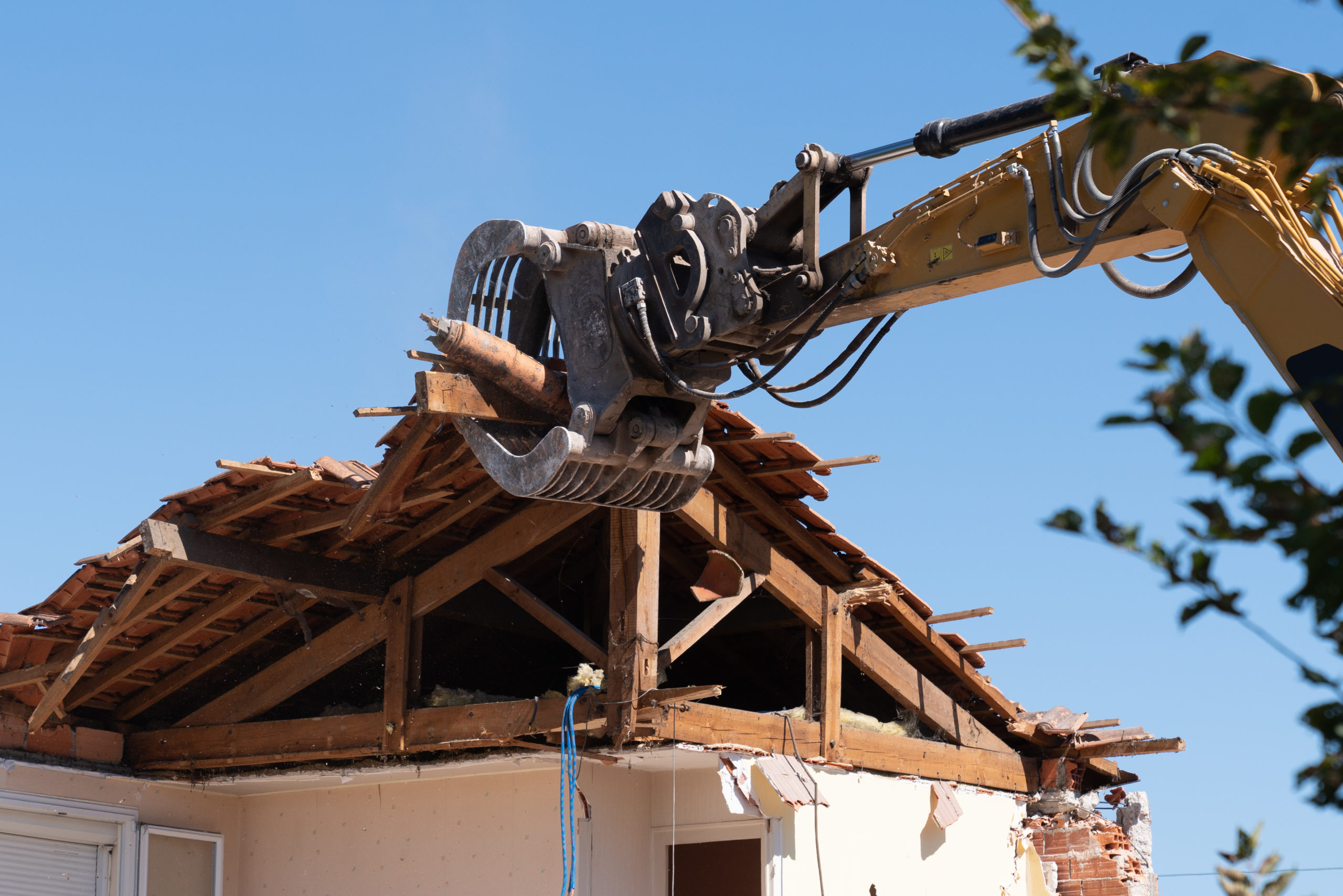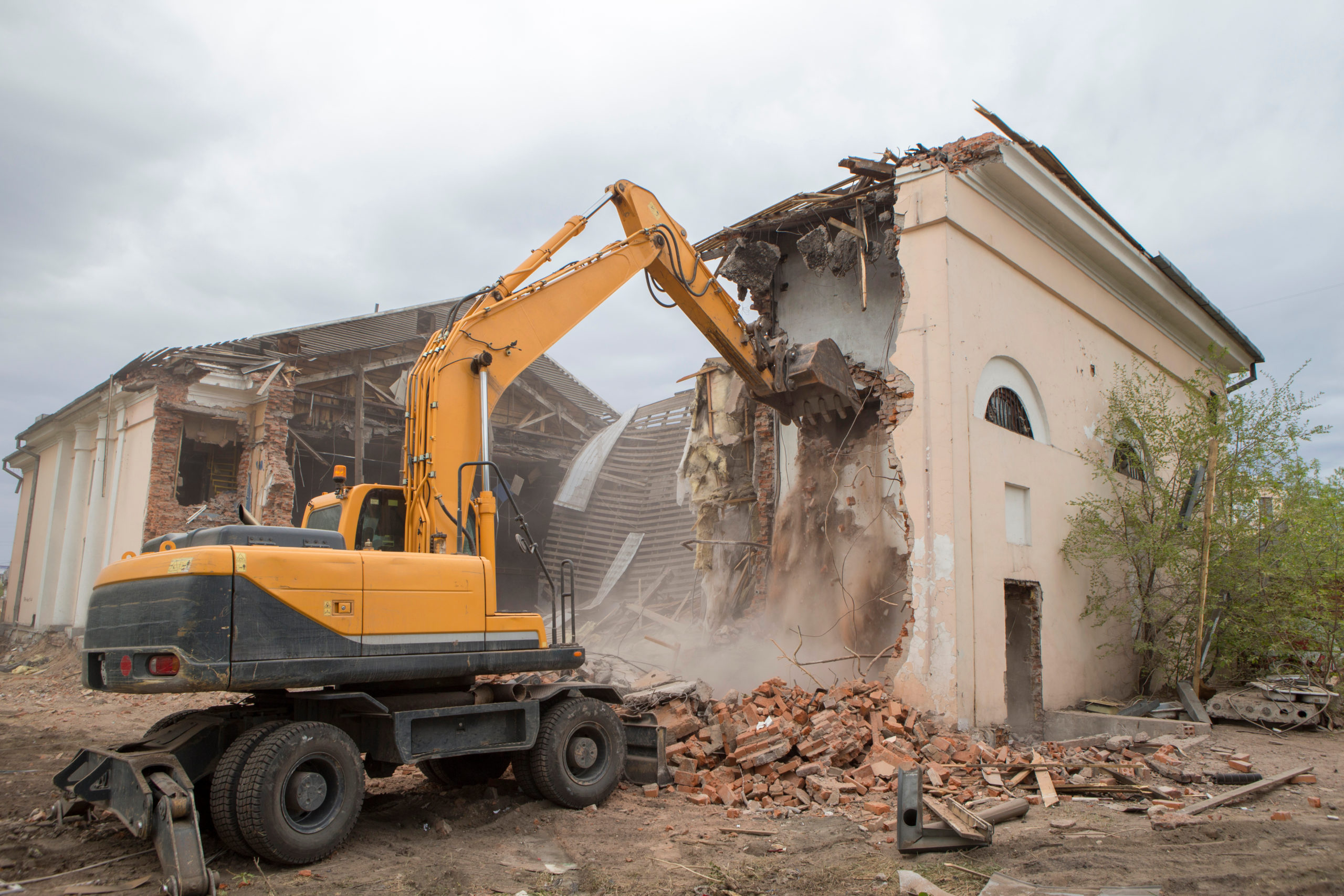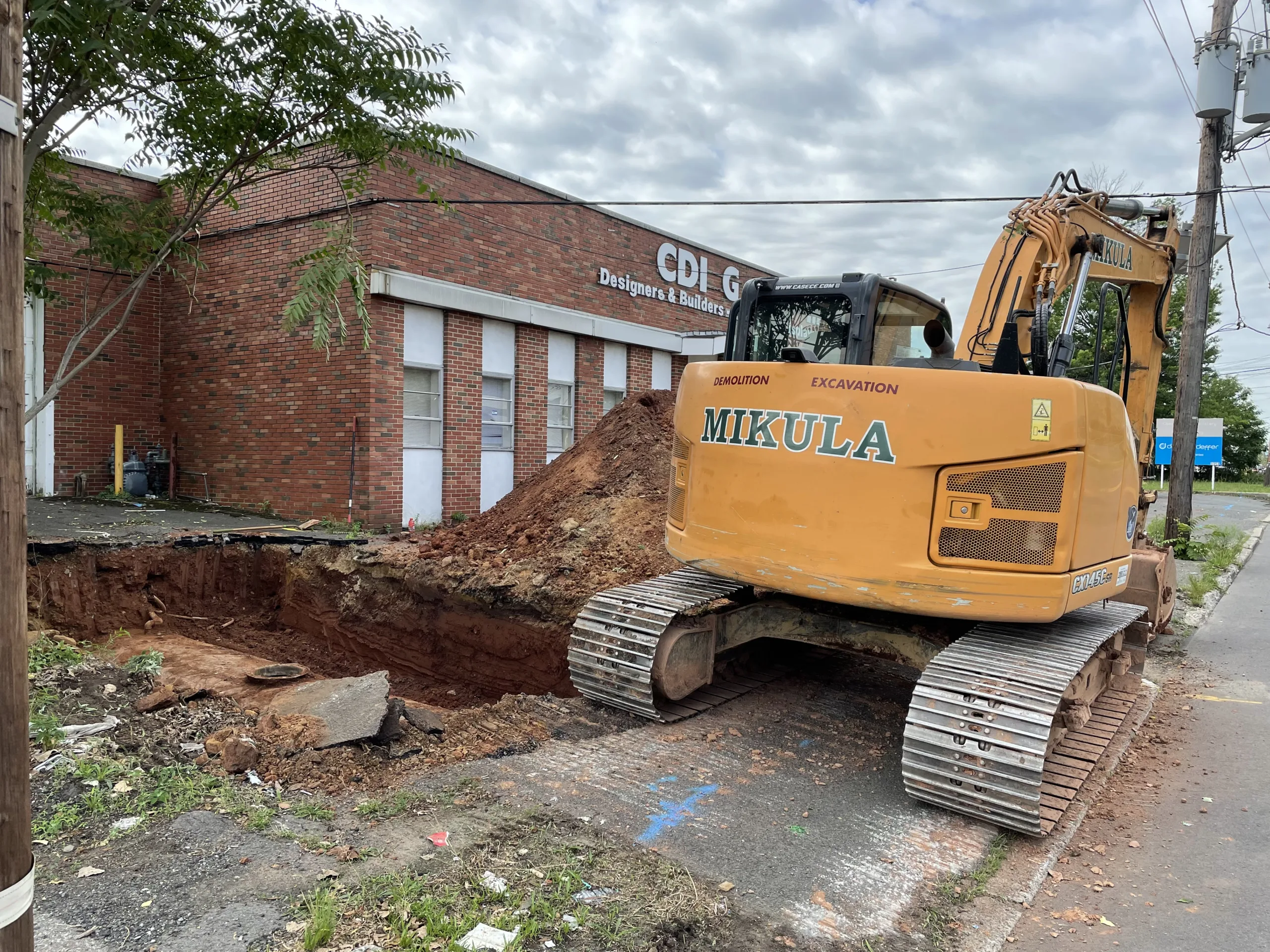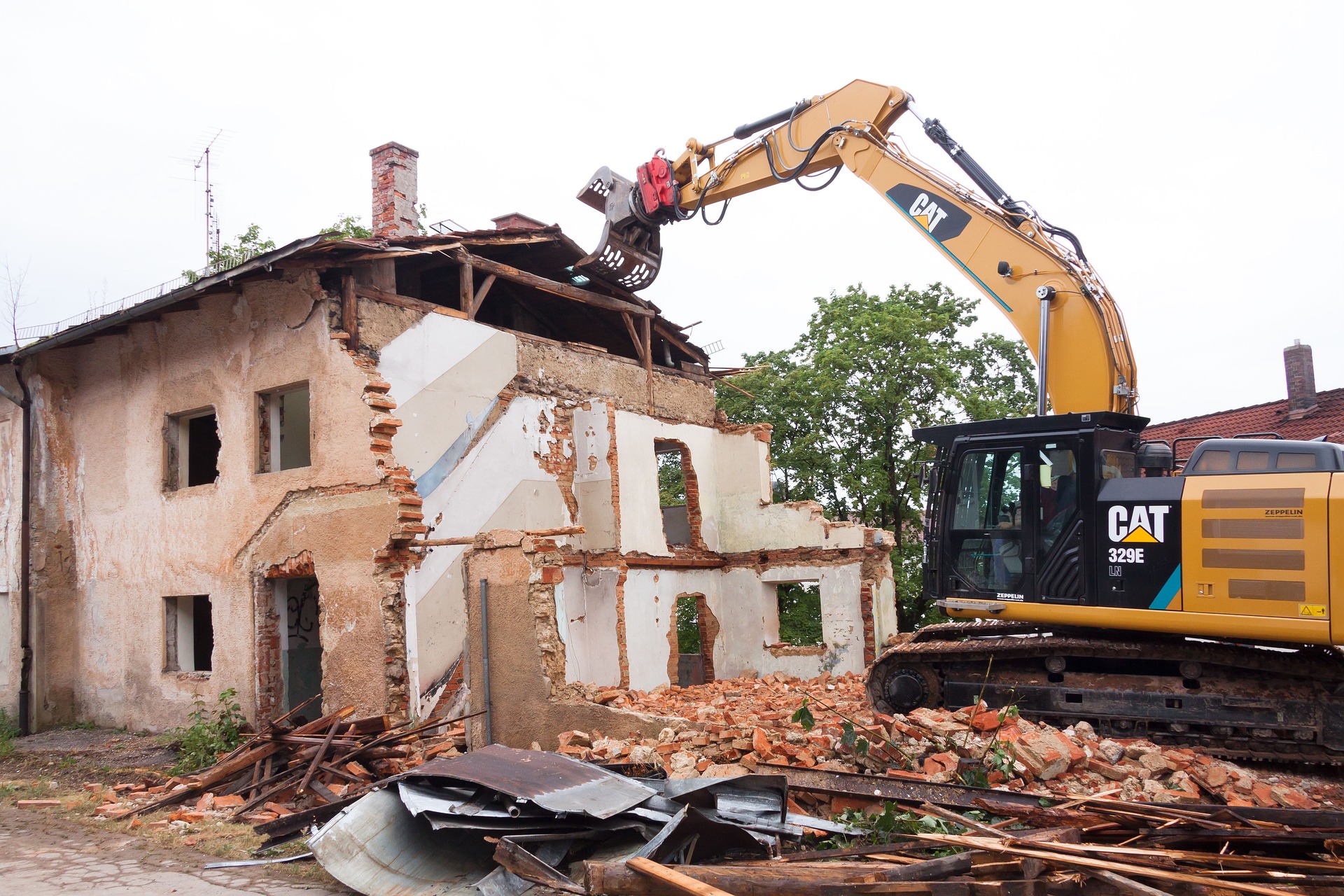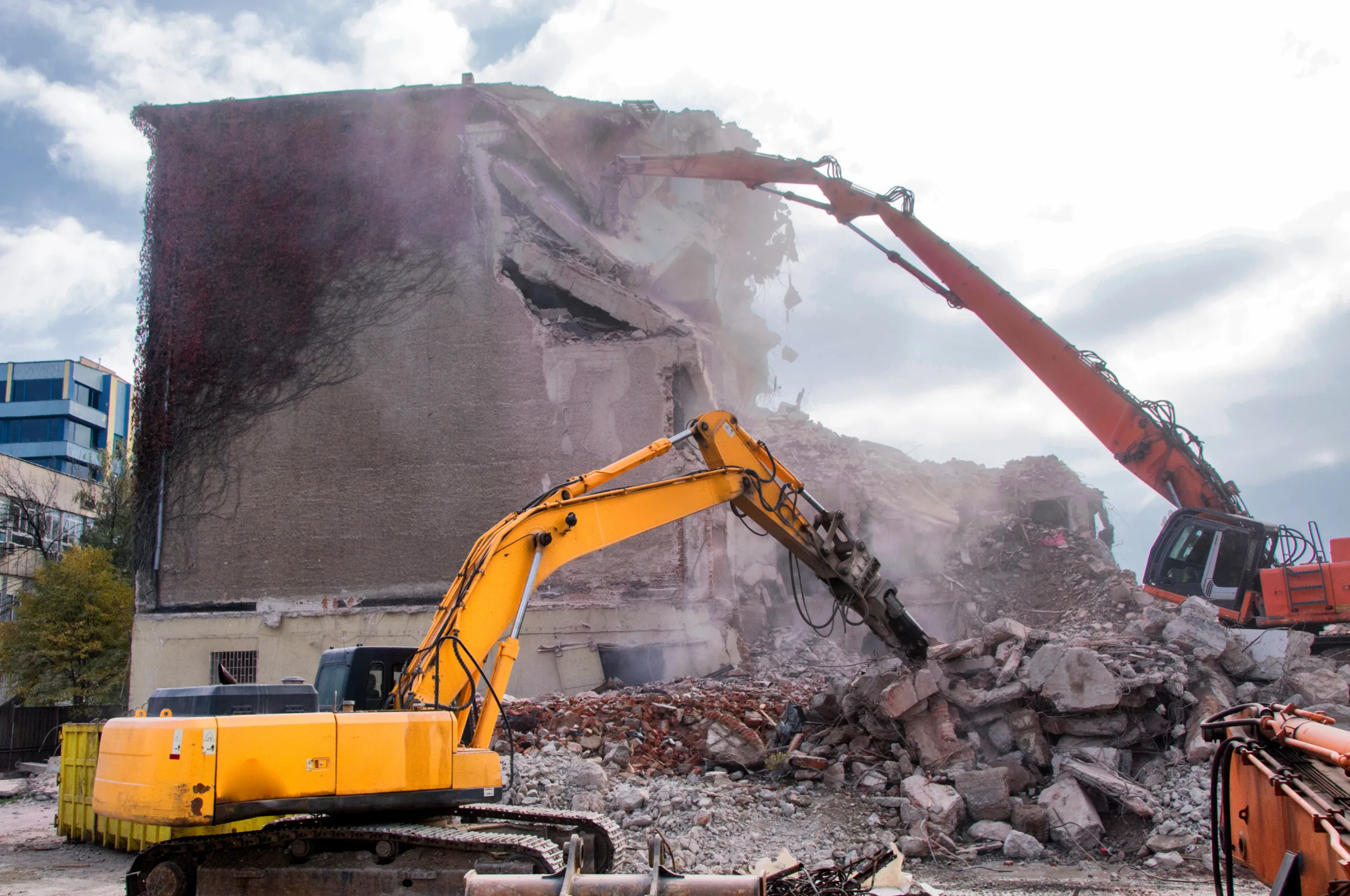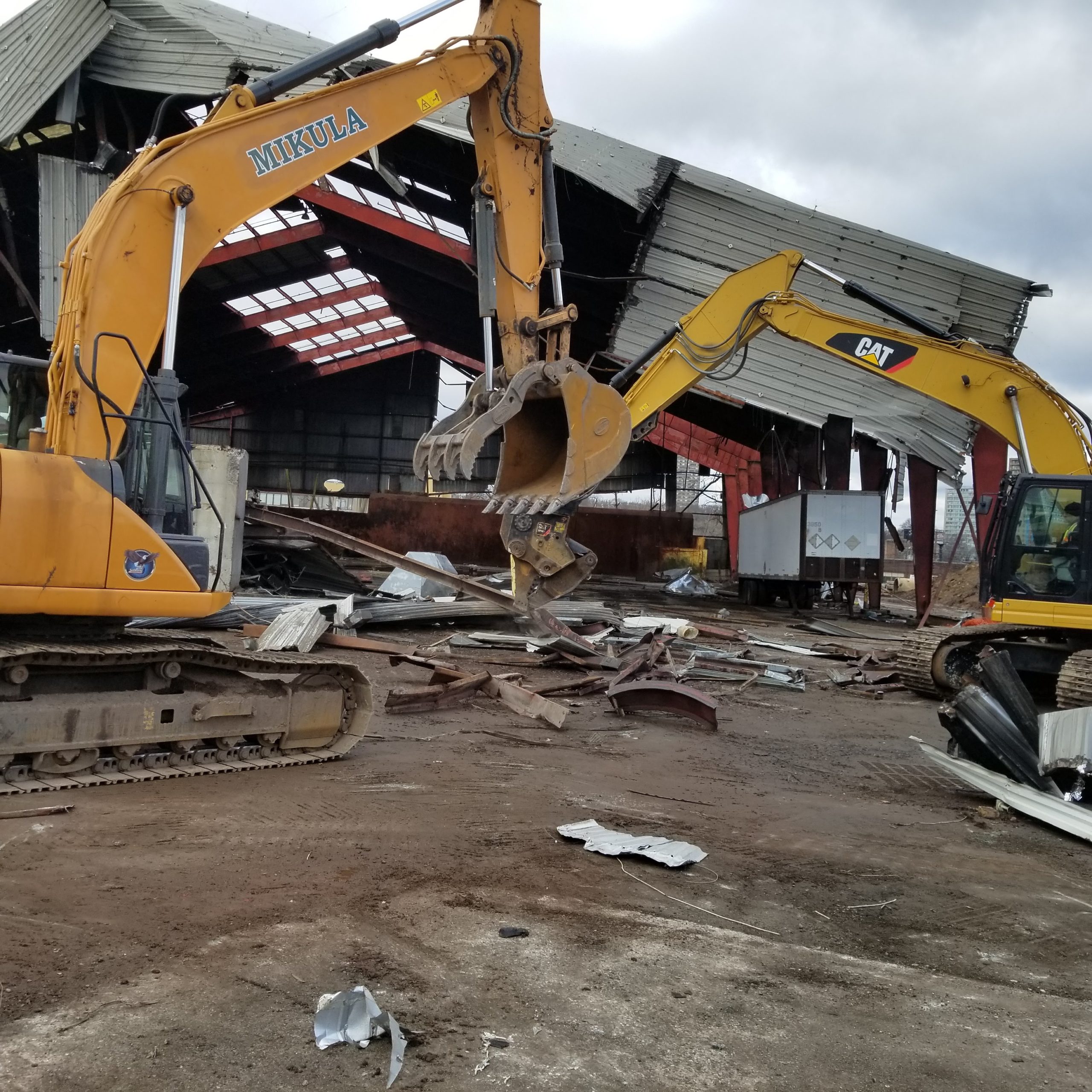How to Safely Tackle Your Summer Demolition Project
The weather is warming up, and your outdoor to-do list is getting longer. What are the most important tasks that you want to finish this year on your property? Whether you are getting ready to clear land or you need help with demolition, our team at Mikula is here to help every step of the way.
The summer often feels like the best time to approach demolition projects. The days are long, and the weather is favorable, allowing you to complete the project as quickly as possible. You want to have a fast and effective outcome, which is why it makes sense to hire a professional New Jersey demolition contractor that you can trust.
In this guide, we are taking a look at the essential steps to help you maintain the highest levels of safety during your upcoming demolition. If you have questions or need help with this process, then reach out to our team at Mikula for more information. We offer careful planning and precise execution, ensuring that every detail is addressed along the way.
Create a Plan and Assess the Project
Before any heavy equipment pulls up on site, you need to make sure that you have a clear plan in place for the demolition. What types of materials are being removed (and are there any special considerations for disposal)? How much hauling and cleanup will be needed after the demolition is complete?
We take the time to understand what your project involves in order to create an ideal plan for your unique needs. Many property owners don’t have a complete understanding of what it’s going to take to handle the project safely. Instead of taking the risk with a DIY project, a better solution is to bring in an expert team for assistance.
Our proactive approach with upfront prep is essential for preventing accidents. We are careful to not only protect your property and the surrounding buildings but also reduce the risk of injury or accident for anyone on the site.
Protect Your Property and Surroundings
There are times when nearby buildings or features are accidentally damaged during the demolition because the New Jersey demolition contractor didn’t take the proper care to avoid these issues. At Mikula, our primary goal is safety for both our workers and the job site. We work to ensure that our team members are highly trained and focused on the job at hand. By focusing on safety for all personnel, we are simultaneously protecting your project from complications that may arise during your demolition. At the same time, we also put protections for the existing structure in place, such as covering windows, laying down plywood, and shielding the landscaping with tarps.
Potential domino effects can occur when a portion of the building is being taken down, which is why we are careful to protect all attached structures. We’ll study the building plans and identify a load-bearing wall, then bring in the right equipment that allows us to complete the demolition with care and accuracy. If needed, the surrounding structures will be reinforced. We follow all of these steps upfront in order to reduce the risk of costly or irreversible damage.
Turn Off Power and Utilities
Demolition will never move forward until the power and utilities have been disconnected completely. In fact, your project will not receive a permit to move forward if this step has not been completed. Turning off the power is one of the most effective ways to ensure safety protocols, especially because many demolition accidents are related to live lines. Make sure your New Jersey demolition contractor shuts down the power, gas, and water in the area before they start working.
Everything needs to be shut off at the source to prevent any issues as the demolition process progresses. Keep full documentation about which things have been turned off, and you can even mark the areas with visual reminders so that all team members are on the same page about managing the utilities.
Do you have a large or complicated demolition site? In addition to hiring a New Jersey demolition contractor, it can also be helpful to bring a plumber and/or electrician on site so that they can double-check all of the connections before the team gets started with the demolition.
Keep the Work Area Clean and Safe
Tidiness is a key factor that will impact the overall safety on the site. Our professional crew will be proactive about keeping an eye on waste generated throughout the project and leaving as clean a worksite as possible when the job is done.
Organization is integral to an efficient worksite. Large-scale demolition projects can create a great deal of waste, and our goal is to ensure the conclusion of the project is safe, efficient, and tidy. We will use a truck demo directly to a site and utilize dumpsters or haul-away services to maintain forward progress and stay ahead of the mess.
Use the Right Tools and Equipment
Ask your New Jersey demolition contractor about the types of equipment that will be used during the demolition. The selection of equipment and staff matters and can make a difference in keeping the demolition safer and more efficient.
Because our team tackles whole-structure demolition projects both big and small, we employ heavy equipment and experienced operators to ensure that the job is done efficiently and all debris is cleared away effectively. Ensuring staff are properly trained and maintain safety certifications provides peace of mind while these large pieces of equipment are being used.
It’s also critical for crew members to always have the proper PPE for the type of project being completed, some examples being hard hats, steel-toed footwear, safety glasses, and high-visibility vests.
Work With a Trusted New Jersey Demolition Contractor
When you are ready to move forward with your demolition project, it’s time to reach out to a New Jersey demolition contractor. Mikula is always here to help! We’ll provide customized demolition services based on your unique needs, ensuring that safety is always the top priority every step of the way. Contact us to learn more about residential and commercial demolition services.
Why You Should Choose a Local Contractor for Demolition Projects
When you need help with demolition or excavation, it always makes sense to hire a local team. Not only does a New Jersey demolition contractor know the best strategies for local conditions, but they are also familiar with the area to ensure a smooth and efficient demolition process.
There are many benefits available from hiring local contractors. The more property owners start understanding the importance of working with a local team, the better the outcome for upcoming projects. These local contractors bring community knowledge, trust, and years of experience to ensure an optimal outcome.
Four Benefits of Choosing a Local Demolition Contractor
The benefits are undeniable: it makes sense to hire a local contractor to help with the demolition process. You need to be sure that you are working with a team that ensures that the demolition goes smoothly and effectively. Here are some of the reasons why you should hire a local company instead of nationwide services.
1. Cost Effective
The reality is that building demolition can be quite expensive. In addition to paying for the labor and services to take down the building, there are additional costs for waste removal and disposal. It might be surprising to see how much you are going to pay for these demolition services. But it is worth the investment to bring an expert team on the job, ensuring safety and efficiency every step of the way.
Keep in mind that in the end, even with other fees involved, hiring a local contractor is often a lot more cost-effective than contractors in other locations. You can avoid the expenses related to travel and transportation, which will reduce your overall costs. They have access to local suppliers and equipment, which helps to keep their prices competitive.
2. Knowledge of Local Regulations and Permits
There are many local regulations and building codes that need to be followed. These guidelines are in place for safety and environmental protection. Additionally, following the regulations is essential to help you avoid potential legal fees and fines.
Don’t make the mistake of assuming that environmental regulations and building codes are inconveniences. An experienced New Jersey demolition contractor understands the zoning laws in the area. They can navigate this process efficiently, helping you avoid expensive delays and problems.
3. Show Support for a Local Business and Supporting the Local Economy
Do you prefer to support local businesses instead of large chains and corporations? Choosing a New Jersey demolition contractor is an excellent solution to strengthen ties within the community as it shows your commitment to supporting the community and building the local economy.
A local contractor brings many benefits to your project, such as minimizing the impact on the environment by using proper equipment. Additionally, this local team has worked on many other similar projects over the years, and they are well-connected with other providers and contractors in the area.
Additionally, when you hire a local contractor, it keeps money circulating within the community. You are supporting their local business and providing jobs to residents. It feels good to know that you are doing your part to support the community and encourage local businesses to thrive. Hiring a local New Jersey demolition contractor means that you are voting with your dollars to encourage local businesses.
It also brings a lot of peace of mind knowing that your demolition is being handled by an expert team. At Mikula, we help with every detail, including local safety protocols, hazardous materials, heavy machinery, waste management, and more. When you are supporting our local business, we support the community by working with other local partners in the area for all of the services that are necessary to complete your project.
4. Reviews and Ties Within the Community
One of the benefits of working with a professional demolition contractor is that they have a reputation to uphold. They’ve built a strong presence in the local community, and the team is motivated to maintain this reputation. So, there is a high likelihood that you will receive quality work and services.
As you are deciding on a contractor to hire, it’s easy to verify the reviews for a local team. Sometimes, you can get references from the contractor in order to speak to past clients about the services they received. This process gives you more information to help you choose the team that is an ideal fit for your unique needs.
These community ties are beneficial because they speak to the contractor's accountability. It’s likely that the team is prioritizing customer service, which increases the chances that you are going to be satisfied with the level of service you receive overall.
Work With a Trusted New Jersey Demolition Contractor
When you need help with demolition or excavation, then our local team is always here to help. We are proud to hold a reputation as one of the most trusted New Jersey demolition contractor teams in the area. Over the years, we’ve served many clients who are very satisfied with the results that we delivered.
Our team is based in New Jersey, and we bring the knowledge, expertise, and trust you deserve to every project. Contact us today if you are looking for a local demolition company in the area. At Mikula, we offer both residential and commercial demolition, based on your needs for the project.
The Benefits of Planning Your Demolition Project During Winter
If you need to work on a commercial or residential demolition project, then it’s easy to assume that you should wait until the weather improves before getting started. But in reality, winter is often the ideal season for demolition. In this article, we are exploring the benefits you can expect if you choose winter for your New Jersey demolition projects.
Can Demolition Projects Happen During Winter?
There is a common misconception that demolition and construction projects should only be completed in warm weather conditions. But the truth is that demolition is not only feasible in the winter weather, but often it’s the best time of year to get started on your demolition project.
Modern equipment and techniques make it easier than ever to complete a demolition project in any weather conditions. Our team will bring the proper machinery for the job, and keep you updated on the anticipated timeline for completion.
Of course, there can sometimes be weather-related challenges that need to be accounted for. If a heavy snowstorm comes through, then demolition might need to be paused for a few days while the weather clears. Our team at Mikula Contracting is prepared to work around these weather conditions, and we will even build a few extra days into the schedule to ensure that everything can be completed as anticipated.
There are different things that we can do to accommodate the freezing temperatures. We know that snow and ice might be on the work site, so we will proactively handle these conditions to ensure safety every step of the way.
Five Benefits of Scheduling a Winter Demolition Project
Here are some of the reasons why it makes sense to get started right now with winter demolition for your project.
1. Easier to Dig
Did you know that the colder months can make conditions more conducive for certain projects? When the ground is frozen, it can sometimes provide better support for the heavy machinery we will be bringing on-site for the demolition. In comparison, if we are bringing equipment in the spring season when the ground is muddy, then extra preparation is needed to minimize damage to the property and avoid issues with getting stuck in the mud.
There is a lower risk of soil erosion during the colder months. Also, the plants and trees are hibernating for the season, so there isn’t a need to clear away landscaping and branches to make room for the demolition.
2. Preparation for Spring Construction
If you are planning to start construction or renovation projects in the spring, then it’s essential to make sure that the site is ready to go when the weather warms up. Clearing the site now means that you can get an earlier start in the construction season and avoid weather-related delays with your other contractors.
It makes sense to complete the demolition during the winter so that you have smoother scheduling with the rest of the construction activities that will be happening through the spring and summer. As a result, there’s a higher likelihood that you will be able to reach the finished completion date on time.
3. Less Busy
During the winter season, it’s common for contractors to be less busy. So, they have more availability to offer because their schedule is open. This reduced demand can speed up the completion timeline because there aren’t other competing projects.
Ultimately, you’ll likely receive more attention from your contractors when you are working with them during off-peak months.
4. Dust Control
When there is moisture from the snow and other weather conditions, it naturally has a positive impact on dust control. Dust is an ongoing concern in demolition, but it can be easier to manage during the winter. The benefits are undeniable: dust control decreases the inconvenience to nearby properties and helps to improve air quality at the same time. Decreasing dust in the air is essential for the health of both humans and the environment.
5. Environmental Considerations
There’s no way to avoid an impact on the environment when you are completing a demolition project. However, experienced demolition contractors can help with proactive steps that minimize environmental impact. Many animals are hibernating during the winter season, which means there is a lower impact on their lifestyles.
Another positive benefit is that the frozen ground reduces the risk of water pollution and soil erosion during the demolition. If you are prioritizing eco-friendly practices, then it is best to complete demolition during the winter so that the land can be restored in the spring.
Schedule Your New Jersey Demolition Project Today
If you are considering winter demolition in New Jersey demolition projects, then our team at Mikula is here to help. We know how to address all of the winter-specific challenges and offer full-service solutions for your demolition site.
Contact us to learn more about the many services we offer, including both residential demolition and commercial demolition.
Five Tips on How to Ensure a Safe Demolition Site
When you need demolition services for a building or structure on your property, hiring the right demolition contractor is the best decision that you will make. There are undeniable risks and potential hazards with this type of project, which is why you need to be sure that an experienced and licensed team is handling the demolition work.
The truth is that standard safety practices can greatly reduce the risk of accidents. You not only want to avoid injuries and help everyone stay safe – including workers and others in the area. But these practices also minimize the likelihood of unwanted property damage for yourself and surrounding structures.
So, as you are hiring demolition contractors, ask them about tips for staying safe on a demolition site. Make sure that they are following the best safety protocols to ensure an optimal outcome for your project.
Tip #1 - Proper Planning
The key to successful demolition operations starts with proper planning. An experienced contractor will complete a thorough site assessment to determine whether any specialized techniques are going to be needed for hazardous materials.
For example, asbestos surveys are essential when demolishing older buildings. Other potential hazards that need to be accounted for include underground utilities and unstable structures.
Before the demolition crew steps foot on the worksite, you should have a detailed demolition plan in place. Your contractor will help by ensuring that they bring all necessary equipment, safety tools, and permits. Every demolition contractor also carries the responsibility of complying with local regulations and safety protocols at all times.
If there are structural concerns, then engineers will need to be involved in the planning phase. They can provide important insights, especially for high-risk areas of the building.
Tip #2 - Disconnected All Utilities
It’s essential to make sure that all utilities are disconnected before the demolition work begins. Your contractor should assist with disconnecting the electricity, water, gas, and sewer lines on the site. The team will need to work with the utility companies to confirm that there are no live lines.
Even when the utility lines are disconnected, the lines need to be marked clearly. Proper marking systems give the crew information about how to proceed with the demolition and can minimize the risk of confusion. Additionally, even when the lines are properly disconnected a markout is still required if any digging is part of the demolition process.
Once you are ready to start the demolition, a final check should be done to make sure that all utility risks have been handled and the site is safe.
Tip #3 - Wear PPE at All Times
When the crew is on the job site, they should always be wearing the recommended personal protective equipment (PPE)based on the type of work being done. Make sure that your demolition contractor requires employees to wear these items to minimize the risk of injury when on the site.
Common PPE requirements for the demolition process include hard hats, gloves, steel-toed boots, and safety glasses. If workers are being exposed to hazardous materials in the air (such as dust and/or asbestos), then they might need to use respiratory masks.
Tip #4 - Maintain Communication
Clear communication should be in place between crew members, various contractors, and the property owner. The team needs a way to share quick updates and emergency alerts, which is why radios or other communication devices should be on site.
One essential practice to ensure safety is holding a briefing every morning about the activities of the day and potential risks that need to be managed. This team meeting can also be helpful to provide updates about the project and make adjustments to the demolition plan if needed.
Other forms of non-verbal communication can be used to mark the most dangerous areas of the work site. For example, signs and flags should always be placed to mark utility lines, restricted areas, and any other hazards that could cause injury.
Tip #5 - Training
Every crew member should complete a thorough safety training class and also be informed about the unique considerations for each job site. Team members need to know how to follow safety protocols properly. Additionally, everyone needs to understand hazard identification and how emergency situations should be handled.
Depending on the demolition methods being used, applicable safety training should be provided for the specific type of equipment. Not only does the crew need safety instructions for heavy machinery, but safety practices should also be in place for smaller handheld tools.
Put Your Demolition Project in the Hands of a Trusted New Jersey Contractor
There’s no doubt that you will benefit from the services of a professional demolition contractor. When you are hiring a team for your demolition project, make sure they have experience in the industry and a proven track record.
Partnering with a reliable contractor is one of the best decisions that you will make, giving you peace of mind every step of the way. Our team at Mikula is here to help, offering both residential and commercial demolition services– reach out today to learn more.
Why the Weather Forecast Plays an Important Part in Demolition Planning
When you are getting started with demolition planning, there’s no doubt that the weather forecast needs to be considered to ensure a successful outcome for the project. These types of projects are highly sensitive to the weather, and changes in the forecast can play a role in safety, project timelines, and overall cost.
While it’s not possible to avoid adverse weather conditions altogether, knowing the forecast can help the demolition team prepare for any potential delays that might occur. This information is valuable to adjust plans on an as-needed basis, which also helps to prevent accidents and ensure smooth operations throughout your residential or commercial demolition project.
The Weather’s Impact on Demolition Planning
The type of weather conditions you are dealing with will impact demolition planning in various ways. For example, certain types of weather can make it unsafe to use certain equipment or might increase the risk of structural instability.
Not only do weather patterns affect the demolition planning itself, but they can also impact access to the construction site and the transportation of debris removal. Many factors and logistics need to be managed to ensure the project stays on track from start to finish.
Our team is proactive with proper timing for your demolition project, considering weather forecasts and other site-specific factors that could affect the risk of hazardous situations.
Rain
A few sprinkles are usually insignificant during demolition planning. But if you have heavy rain, then you need to be ready with contingency plans.
A lot of water makes the ground unstable and slippery, which can lead to equipment malfunctions and safety risks. These issues affect visibility, slow down the workers, and make it more difficult to be precise with the demolition work.
Additionally, if there is water accumulation on the demolition site, then the standing water can interfere with demolition tools and heavy machinery. Not only does the equipment have difficulty functioning in these conditions, but you are also increasing the risk of damage to the equipment.
On the other hand, however, rain can also work in favor of your demolition contractor as rain does help keep dust down during the demolition process.
Snow
Snow also poses a safety risk for workers and machinery. The moisture and freezing temperatures can create cold and slippery conditions, which cause delays in the demolition schedule. When demolition planning occurs in winter weather conditions, then it can result in increased costs and timeline delays due to the need for more preparation and site cleanup.
Other issues can occur when ice starts to build up. For example, this buildup can damage equipment and freezing temperatures make it unsafe for the workers to complete the demolition in these conditions.
Wind
Strong winds are another big concern during demolition planning and execution, especially if you are dealing with open-structure or high-rise demolitions. High winds can put workers in danger, blow in debris, and put bystanders and nearby buildings at risk.
In fact, if the wind is too strong, then it can pause demolition activities completely. If there are safety concerns, then a good demolition contractor will halt the project to ensure the safety of everyone on site.
Temperature
Extreme heat is another weather factor that needs to be considered during demolition planning. When it’s hot outside, crews on construction projects have a higher risk of exhaustion and heat-related illnesses. Not only is this a concern for worker safety, but it can also slow down progress on the project.
On the other hand, cold temperatures can cause equipment malfunctions, problems with heavy machinery, and other issues like frozen pipes. Proactive strategies need to be in place when demolition planning is occurring during the winter season.
Another factor that needs to be considered is the way temperature changes can affect the materials being demolished. So, the whole process can be more unpredictable, depending on the time of year and weather conditions.
It’s important to note that while extreme temperatures can be problematic if planned and communicated properly you can still maintain a successful project.
Extreme Weather
While extreme weather events aren’t common in New Jersey, they are still possible and need to be considered in demolition planning. Examples include hurricanes or tornadoes that can cause serious delays, and may even shut down the project until the weather event is over.
All demolition and construction sites should have contingency plans in place if extreme weather occurs, including securing the site and evacuating the crew if needed. Planning for these potential events helps to reduce the risk of potential damages and protects workers at the same time.
The Importance of Understanding the Weather Forecast for Demolition Planning
When the demolition team is aware of upcoming weather, they can build contingencies into the demolition planning and scheduling. Checking the weather forecast is a great way for contractors to decide on the best time to start or pause the project.
Additionally, continuous monitoring is essential to ensure that everything is staying on track and to minimize the risk for everyone involved. If the conditions change, then we can make adjustments to the schedule, the type of equipment being used, or other strategies for a safe demolition.
How to Avoid or Minimize Weather-Related Demolition Delays
When you are hiring a demolition contractor, ask them about how they work around weather-related delays. One of the best strategies to manage these situations is by creating contingency plans that allow for project rescheduling and/or alternate workdays in case bad weather occurs.
A knowledgeable team will always stay up-to-date on anticipated weather patterns over the upcoming days and in the long term if it’s an extended demolition and construction project. Additionally, it’s important that the team uses weather-resistant materials and equipment that will keep the work moving forward in light weather conditions (such as wind or rain).
Call Our Knowledgeable New Jersey Demolition Contractors
You deserve to be working with a demolition provider that you can trust. If you are looking for local demolition contractors, then we invite you to reach out to our expert team at Mikula. We understand the challenges that need to be handled when weather conditions are affecting the project.
At Mikula, we are proactive about carefully planning around weather forecasts so that you can keep your project on time and safe. When you need professional demolition services, then reach out to us to learn more about the ways that we can help. Schedule a free consultation to discuss your upcoming demolition project.
How to Tell a Building Needs to be Demolished Versus Renovated
If you have an old building on your property, is it possible to invest in renovations, or should you call a demolition contractor instead? Each situation is unique, which is why there isn’t one specific answer for every job. The best solution is to reach out to an experienced contractor who can inspect the building and offer personalized recommendations.
There are various factors we can look at to determine if the building is worth renovating or if you will be better off demolishing the building and starting with new construction. It’s essential to look at factors such as safety, structural issues, and the financial costs of both decisions.
Here are a few things to keep in mind as you are considering the future use of the property, as well as the time investment and cost considerations going forward.
Demolition Vs. Renovation
There are many benefits of preserving an older building, and you can’t put a price tag on some of these benefits. For example, preserving the historical or sentimental value of the building might make it worth the investment to undertake a big renovation.
But there are times when the building isn’t salvageable, or it will be too costly to renovate. In these situations, it makes more sense to call a demolition contractor so you can clear the area for a complete rebuild.
As you are evaluating both of these options, look at the differences in the scope of work that will be necessary. Also, consider the cost and time requirements, necessary permits, and building code requirements for demolition vs. renovation.
When Would a Renovation Be More Beneficial Than Demolition?
Here are a few points that can influence your decision to choose either renovation or demolition:
Structural Integrity: Does the existing structure have “strong bones?” If the foundation and walls are holding up well, then renovation might make sense because the work is a bit more surface-level.
- Historical Significance: Sometimes, there are legal protections in place that require historical buildings to be renovated. The goal is to preserve historical buildings and protect them from demolition.
- Costs: How much money would be spent on a renovation? What is the most cost-effective solution? Compare these costs to the amount you would spend on demolition and rebuilding. If you are in an area with strict building codes, then sometimes the costs of demolition outweigh the benefits.
- Cosmetic Upgrades: If your priority is to improve the cosmetic or aesthetic appearance of the building, then minor repairs and a renovation might be sufficient to bring the building up to the desired condition again.
- Modern Improvements: When your goal is to update features while preserving the character of the building, then renovation can be a great choice.
Signs Your Building Should Be Demolished
There are times when the best solution is to demolish and rebuild, but it really depends on the condition of your building and property. Here are a few signs that you might need to move forward with a demolition:
- Structural Issues: Inspect the building for serious problems such as foundational cracks, sagging roofs, and other major issues that will be very expensive to repair. Also, if there is a danger of collapsing, then demolition might be the best way to proceed.
- Water Damage: Extensive issues with mold, water or fire damage, and other environmental hazards could pose long-term risks to the building and the people inside.
- Outdated Systems: Eventually, major systems will need to be repaired such as the plumbing, electrical, or HVAC systems. But sometimes it’s too impractical or expensive to retrofit these things, which is where it might be best to demolish the building and construct something new.
- Safety Codes: All buildings must meet certain safety standards and local codes. If your building isn’t compliant, then it might need to come down.
- Land Value: When your old building is in an area where the property values are increasing, then it’s possible that the land might be more valuable than the actual building. Evaluate whether demolition is the best financial choice to ensure you get the top price for the sale of the property.
Work With a Demolition Contractor You Can Trust
If you decide that it’s necessary to move forward with demolition, then the first step is to hire a trusted demolition contractor in the area. Make sure to pick a team that is licensed and experienced to ensure that your demolition is safe and efficient. We can come to your property to complete an inspection and assessment to determine if demolition services are the right fit for your needs.
At Mikula, we are here to help with anything that you need. Not only does our team handle the actual demolition, but we can also assist with other necessary tasks such as obtaining permits, building material waste disposal, and environmental considerations. We have experience with demolition in residential properties and commercial buildings.
We offer full-service solutions for your upcoming demolition. For more information, contact our team at Mikula to schedule a consultation.
Why the Experience of Your Demolition Contractor is Critical
Demolition is more than just tearing things down. This process can be quite complex and there are always risks involved. A skilled demolition contractor understands the importance of safety and careful planning, while also maintaining efficiency every step of the way. Additionally, it’s essential that you find an experienced team who knows the local, state, and federal regulations and maintains compliance every step of the way.
When you are preparing for demolition, it makes sense to find a team that brings years of experience to your project. Professional contractors have not only completed other similar projects, but they also have the necessary certifications, licensing, and credentials to complete this type of work. You need to make sure that you hire the right team to avoid damage, injury, and legal issues associated with your project.
Here are a few reasons why it makes sense to hire the most experienced demolition contractor for your upcoming commercial or residential demolition work.
What Type of Experience to Look for in Your Demolition Contractor
When you are talking to different demolition contractors in your area, there are several points of experience you can ask about:
- Years in Business: How long has the demolition contractor been in business? The longer, the better, because it means that they have more hands-on experience on a variety of job sites. Generally, a longer track record means that you are working with a more established company.
- Project Specialties: What type of services do you need from the contractor? Ask questions about their related experience with other similar projects. For example, do they usually work on residential, industrial, or commercial demolitions? What is their expertise and experience when it comes to handling hazardous materials?
- Safety Track Record: Make sure your demolition contractor prioritizes the safety of everyone involved. When the team has a strong safety record, then it means that they are committed to protecting their people and your site.
- Licensing and Certifications: When hiring contractors for construction projects, it always makes sense to ask about their certifications and licensing. Having the proper credentials and coverage in place speaks to the professionalism of the team you are working with.
- Equipment and PPE: Find out about the type of equipment the contractor will be using for the demolition project. This will help you learn more about their demolition process, and you can be sure that the equipment handlers have the proper training and certifications for using heavy equipment.
- Waste Management: Ask about the demolition contractor’s approach to minimizing the environmental impact of waste disposal. Demolition and environmental concerns go hand in hand, which is why it’s best to hire an experienced team that is proactive about protecting the environment every step of the way.
Benefits of Finding an Experienced Demolition Contractor
There’s no question that you will experience many benefits by hiring an experienced demolition contractor. Don’t make the mistake of cutting corners and hiring an inexperienced team! Here are some of the benefits you can expect by working with a team you can trust:
- Safety: It’s easy to see that safety should always be a top priority on every work site. Hiring an experienced contractor means that they have established safety protocols in place, which reduces the likelihood of them making expensive mistakes that could result in human injury and damage to the site. A good contractor will identify potential hazards and then take proactive steps to make sure that everyone is safe despite these hazards.
- Efficient Results: Timing matters, especially if the demolition is preparation for an upcoming construction project. Be sure to hire a skilled team who will complete the project according to the anticipated timeline, helping to reduce the risk of scheduling disruptions.
- Cost Factors: Even though the price may be higher to choose a more experienced contractor, keep in mind that these expert services often save you money in the long run. Their expertise and efficiency mean that you can avoid expensive issues, such as accidents, project delays, or injuries.
- Regulations and Compliance: You need to be sure that you are working with a demolition contractor who understands local regulations and will maintain compliance every step of the way. Not only will this give you peace of mind, but it also ensures that you are avoiding legal issues with the demolition process.
You deserve to know that your demolition project is in capable hands, which is why it makes sense to hire a contractor that you can trust. Always learn more about the contractor before choosing a provider for demolition, construction, and more.
Speak With a Top New Jersey Demolition Contractor
What questions do you have about your upcoming demolition project? Our team at Mikula Contracting is here to help. We’re happy to provide more information about available services, including demolition for both residential and commercial projects. Contact us to learn more!
What Needs to be Done Before a Demolition Project Begins in New Jersey
Are you getting ready to demolish a structure on your property? Talk to a New Jersey demolition contractor, and you will find that there are a few preparatory steps that need to happen before the building can come down.
Here is a quick overview to help you get started in a way that ensures a successful demolition project – and avoids common issues that can occur. These pre-demolition steps are essential before the heavy machinery shows up on site.
Hire a Trusted Demolition Contractor
While there are many demolition contractors to choose from, it’s critical that you do your homework. Because of the potential hazards and risks of demolition, you need to be sure that your selected New Jersey demolition contractor is licensed and has experience with similar projects. Hiring a new contractor or someone without experience not only increases the likelihood of injury on the job, but there is also a higher chance of avoidable damage to nearby buildings or other areas of the property.
Look online to find information about the contractors you are considering. You can learn more about their experience and history. Also, find reviews and information from other people who have used these services.
Remember that the quality of the New Jersey demolition contractor you hire will have a direct impact on the outcome of your project. So, choosing an experienced and skilled contractor is the most important decision that you will make.
Understand the Rules of Your Municipality
Before starting the demolition process, you need to make sure that your demolition plan is in alignment with all the rules and regulations in the municipality. The requirements vary depending on the location and type of structure that you are demolishing. Most property owners don’t know about these municipality rules, which is why it can be helpful to consult with an experienced demolition contractor.
These rules are in place to protect against various safety hazards and possible injuries. Not only does following the rules improve safety on your work site, but you can also avoid expensive fines and penalties that can be incurred if you don’t follow the rules.
If there are special considerations in your demolition project, then you might need to take extra precautions. For example, certain demolition processes must be followed if you have hazardous materials, such as asbestos or lead paint.
Obtain the Necessary Permits
As part of the preparation, you will also need to make sure that you have the necessary demolition permits. Most of the time, your demolition contractor will take care of the permit process. However, you will need to provide property information and other details to obtain these permits.
The permitting authorities will need information about your demolition plan, including the demolition method that you are intending to use. Once you have all the necessary permits, it means that you have approval from the local municipalities to begin.
Disconnect Utilities
The utility lines that are connected to the building and running underground pose a serious hazard on a demolition site. Hitting a live electricity line is not only dangerous, but it can knock out power for everyone else in the area. Hitting live pipes can cause flooding issues and water damage.
So, disconnecting utilities is an essential step before you start the demolition. Potential hazards are much easier to avoid when the utilities are disconnected, and you have clear information about the placement of utility lines.
Your contractor will have a checklist of utilities that need to be disconnected, including gas, electricity, and water.
Rodent Baiting
Even if you don’t see rodents in the building, pests are often there, lurking out of sight. Rodent baiting is especially important when a building has been sitting vacant for a while before demolition. Demolition can bring out the rodents, causing them to run to the neighbors' properties.
Not only does rodent baiting reduce the problems for your neighbors, but many city councils require this step before demolition. Even if there is no evidence of rodents, you must complete these extermination steps. Basic mouse traps aren’t sufficient. It’s necessary to bring in experienced exterminators to ensure there are no pests or rodents left on site when demolition begins.
Create a Clear Demolition Plan
Your New Jersey demolition contractor can help with all of the details for a successful demolition plan. They will create a scope of work for the project, including the type of heavy machinery and equipment that will be needed.
Other aspects of your personalized demolition plan include schedule adjustments to accommodate changing weather conditions, material reuse and recycling to avoid putting everything in the landfill, and special care if any hazardous materials are on site.
Lastly, it is important that your contractor helps with the inspection process and is involved in the planning process to prepare for whatever is next for the property whether you are building a new home, adding an addition, or doing something else.
If you need help with any type of demolition service, then Mikula is the team to call. We’ve been in this industry for many years and understand the best practices to ensure the success of your project. We offer both residential and commercial demolition services. Reach out at your convenience to learn more about how we can help.
How to Avoid Delays in the Building Demolition Process
Not only are construction delays frustrating, but they can also be expensive when these delays impact the rest of the building schedule. The truth is that delays can happen at any stage, but the demolition process is one common time when the contractors can get behind schedule.
The problem is that if your demolition is behind schedule, then it will push back the entire project. It’s critical that you hire the right New Jersey demolition contractor to help with your construction process and protect your schedule (and your budget) during the pre-construction demolition.
Here are a few important strategies to keep your demolition on track. Whether you are working with a general contractor or a demolition contractor, these tips can make a big difference in the overall success of your project.
Work With a Licensed Contractor
Make sure you are working with a team that has plenty of experience in the industry. Often, a general contractor won’t cut it – they will be outsourcing the demolition plan to a subcontractor. If you want to have more control and engagement in the demolition process, then you might consider hiring a New Jersey demolition contractor yourself. Then, you can clear the construction site and make sure that everything is ready to go when it’s time to start construction.
Hiring a licensed contractor means that the team holds the proper certifications and credentials to show that they are trained and experienced in the services they are offering. These certifications speak to the professionalism of the team that you are hiring. You can have confidence in their services knowing that they are specialized in these demolition services.
Set Clear Timelines
While it might seem obvious to set a timeline for demolition, it’s important to be proactive about this step. You need to make sure that your New Jersey demolition contractor and all other parties involved know the schedule so they can stay on track.
The truth is that many contractors in the construction industry are very busy. If you don’t have a clear timeline and agreed expectations, then your demolition contractor might prioritize other projects over yours.
Not only is it a good idea to choose a target completion date, but also talk to your construction companies about their demolition process from start to finish. Discuss all details of your demolition projects, including teardown, hauling materials away, clearing the site, and excavation if necessary. It’s also important to consider delays that can happen due to the weather, for instance, which is why proper contingency planning is good to have.
Communication is Key
When you have an initial consultation with a New Jersey demolition contractor, pay attention to their communication style. Are they proactive about written and verbal communication? Or do you feel like information is missing from the conversation?
These initial meetings give you an idea of what you can expect if you choose to work with the team. Communication should be a priority for a professional demolition contractor. So, if you find that communication is lacking, then you might be better suited to looking for another contractor. The good news is that there are many contractors to choose from in urban areas, which means that you can be picky about the quality of the contractor you are hiring.
One point of communication is getting a written estimate for the work. Ask your New Jersey demolition contractor to visit your site and evaluate the building plans. Then, they will be able to put together a detailed proposal. This estimate should include all related costs, including labor, heavy equipment, hauling demolished materials, and more. Look at the scope of work so that you understand everything you will be receiving from the demolition contractor.
Obtain The Right Permits
Never let a demolition contractor start working until all of the proper permits are in place. Most property owners don’t know the permit requirements, so they lean on the experience of the contractors they are hiring.
Ask your contractor about permits that will be needed for your demolition. Not only do you need to be sure that you have construction permits, but there might also be permits for the use of heavy equipment needed for large demolition projects.
Having these permits in advance can save you time and money because you can avoid delays in the demolition. Without the necessary permits, there is a possibility of your project being shut down, which will delay the schedule. So, it’s worth the few extra days at the beginning of the project to obtain these permits, so your New Jersey demolition contractor can move forward confidently when the demolition begins.
Understand the Specific Requirements of Your Municipality
Did you know that your local area likely has rules, requirements, and laws governing construction and demolition projects? It’s important to understand the rules that must be followed to ensure your team is maintaining compliance every step of the way.
As a property owner, you aren’t expected to have experience with these municipality laws. This is why it is essential that you hire an experienced New Jersey demolition contractor who can help. A pro demolition team will have many years of experience in the local area, which means they can design a plan that follows all necessary rules.
Mikula is Here to Help
Do you need assistance with an upcoming demolition project? Mikula is just a phone call away! We can help with everything related to the demolition process for both residential and commercial projects.
In addition to demolition, we can also assist with many other site preparation projects that will ensure you are ready for construction. Our full-service approach focuses on the unique needs of each client we work with. Contact us today to learn more and receive your free estimate.
Five Factors That Affect the Building Demolition Process
Demolition is more than just tearing out a building that needs to be removed. Successful demolition requires multiple steps and strategic interventions to ensure safety and success in every stage. While smaller demolition projects can be handled through a DIY approach, there are many instances where it makes sense to hire an expert New Jersey commercial demolition contractor for assistance.
These demolition services offer the preparation you need to ensure the site is ready for construction. Not only does demolishing a building clear space for new construction, but it is a necessary step to prevent future issues.
When you hire a New Jersey commercial demolition contractor, several factors will affect your demolition costs and the overall process.
1. Obtaining Permits and Approvals
Depending on the size and type of demolition project, obtaining necessary approvals and permits is often required. A small job, such as tearing down a small retaining wall, won’t likely require permits. But if you are demolishing all or part of a building, then talk to your New Jersey commercial demolition contractor to determine whether permits will be needed.
Factors that might affect the need for permits and approval are if utility removal is involved. There are specific strategies that must be followed for utility abandonment or capping, and the municipality will be involved in these decisions.
The benefit of hiring an expert team for assistance is they understand the local requirements and regulations. Additionally, our team is happy to help with obtaining these necessary permits to make sure that all approvals are in place before demolition begins.
2. Environmental Considerations
Environmental considerations vary depending on the size of the demolition project and the types of materials involved. For example, not only do you need to have strategies in place to take down the building, but it’s also essential to consider how the demolished materials will be removed from the site without damaging the environment.
This demolition process meticulously plans for various aspects, encompassing the selection of equipment and machinery deployed on-site, strategic disposal of materials, and measures to access and mitigate damage to the property in question. Emphasis is placed on adhering to proper disposal protocols and following the correct demolition procedures to minimize disruption and potential harm to the environment and surrounding infrastructure.
If hazardous materials are on the site, then extra steps might be required to dispose of these materials properly.
3. The Weather
Weather conditions can play a role in both the cost and timeline of the demolition project. Even though your New Jersey commercial demolition contractor will do their best to stay on schedule, inclement weather can delay the completion of the demolition project. However, it is worth noting that light rain is actually good for demolition as it helps to keep too much dust from stirring up. Additionally, cold weather typically wouldn’t impact your demolition project either.
If there are weather factors affecting the timeline or outcome, then our demolition team will maintain clear communication so you understand what is happening every step of the way. We have the proper tools and equipment to work in various weather conditions. But there are times when we need to delay the demolition or adjust our strategy depending on the severity of the weather patterns.
4. Size of the Building
At the outset of the project, we will discuss different types of demolition based on the size of the building being taken down. A thorough site evaluation is necessary to look at the foundational structures, materials we will be dealing with, and the anticipated amount of demolished waste that will need to be removed.
Demolition of a small home is relatively straightforward. But things can be more complicated when we are dealing with larger commercial structures and buildings. We need to evaluate the size of the building, floorplan, and other unique factors to plan the demolition properly.
5. Safety
The safety of our team and everyone in the area is always our top priority when planning and executing demolition projects. The success of your demolition depends on our team following specific safety protocols.
We use a variety of safety strategies from start to finish. For example, signage and barricades are important for keeping unwanted trespassers away from dangerous areas. If streets or sidewalks are affected, then these areas might need to be blocked off or rerouted. At Mikula Contracting, we coordinate with the local municipality to properly handle no parking signs or police presence if needed.
Additionally, it is critical to ensure that OSHA standards are always being followed for demolition and construction. These standards manage everything from the way the structure is demolished to physical barriers that reduce the risk of debris and dust infiltrating nearby areas.
The good news is that a skilled New Jersey commercial demolition contractor has experience with all of these safety practices. We take a proactive approach to ensure the best results every step of the way.
Schedule Your Free Estimate with Our New Jersey Demolition Contractors
What services and support do you need for your upcoming demolition? If you need to talk to a New Jersey commercial demolition contractor, then we invite you to reach out to our professional team at Mikula Contracting. You’ll see that we have a solid reputation as one of the most trusted providers in the industry. Our team is always here to help with both residential and commercial demolition.
